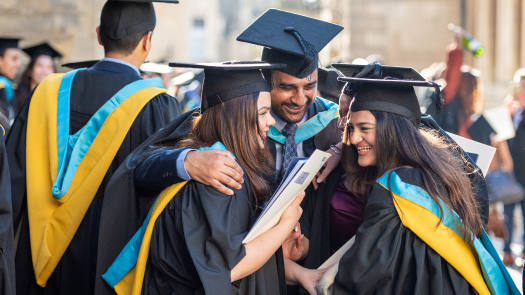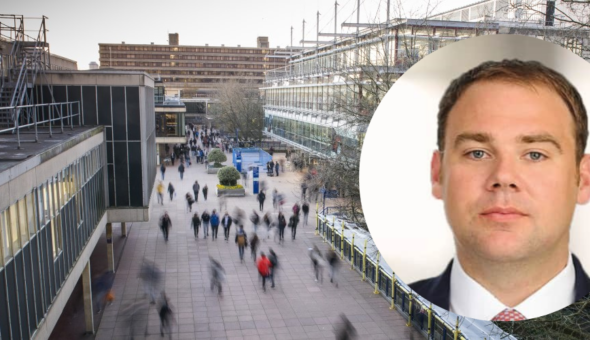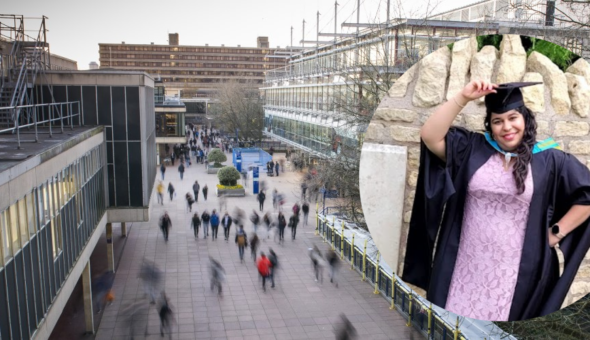Laura Scantlebury (BA Modern Languages & European Studies – French & Spanish 2009) made the move into law after completing her undergraduate degree at Bath and is now Associate Solicitor at Enable Law. We spoke to her about the rewards and challenges of her role, trips to the Plug and a very unusual mugging...
"I graduated in a recession, so I know how daunting it can be to enter an uncertain job market. Sometimes you have to play the long game: you might not secure the ideal job immediately, but you can still get there if you work hard, build connections, look out for opportunities and take them when they come. I’d recommend knowing your strengths and your interests but being open-minded, too.
"Having spent the first three years of my degree aiming to be a journalist, I changed my mind in my final year and decided to apply for a law conversion course. I was offered a training contract (the two years 'on the job' training required to qualify as a solicitor) with a large regional law firm, Foot Anstey, which I started after my two years of postgraduate study.
"I worked in various areas of commercial law, before choosing to specialise in medical negligence litigation. I now work for Enable Law, Foot Anstey's sister firm, which specialises in serious injury and medical negligence cases.
Uncovering liability
"I advise clients who have concerns about medical care and who have suffered injuries or harm as a result. I investigate what happened with independent medical experts and, if they support a case, set out the allegations formally. Sometimes a defendant will admit liability and I can negotiate an out-of-court settlement. If not, then the case goes through the court system. Most cases are resolved before trial.
"I find the combination of tricky intellectual and strategic challenges really satisfying, along with the opportunity to meet clients from all walks of life and make a difference for them. I also find it fascinating to learn about the medical background from our experts, who are often eminent doctors in their fields. Once you are in practice, the technical legal knowledge underpins what you do, but the crucial – and in my view, more interesting – part of the job is understanding your specialist area so that you can identify the key issues.
"Shortly after qualifying, I was involved in a large group action. We acted for around 200 women treated by a consultant obstetrician and gynaecologist. The consultant was investigated by the Royal College of Obstetricians and Gynaecologists and asked to resign. It became clear that concerns had been raised over a 20-year period but hadn’t been acted upon. It gave an unusual insight into some of the organisational issues facing a hospital in that situation.
From languages to law
"Although I rarely use my languages at work, my degree prepared me well for a legal career. As a lawyer, you have to quickly evaluate and distil large amounts of complex information, which is a skill I learnt at Bath. Clear communication and building rapport are also vital – studying languages helps to develop both of these. All the seminar presentations I delivered as part of my degree made me feel comfortable speaking in public, which turned out to be very useful!
"One of the best things about a language degree is that you have lessons each week dedicated to just talking. I was with a lovely group of people, so there was a lot of laughter in conversation classes – especially when we decided to go to the Plug bar for drinks before a late Friday afternoon French-speaking class! I also have great memories of lazy summer days in Victoria Park and sampling the city's bars and restaurants.
"I was also involved with the student newspaper. My focus was mainly on the features and lifestyle sections, so I took full advantage of perks like press tickets to the Bath Literature Festival. There were some serious news issues too, such as Vice-Chancellor pay, coming at a time when tuition fees had risen. But, to my shame, the only news headline that still sticks in my mind was ‘Student Mugged for Pizza’. I should be clear, though, that it wasn't an actual mugging – we used some journalistic licence!"
Respond



